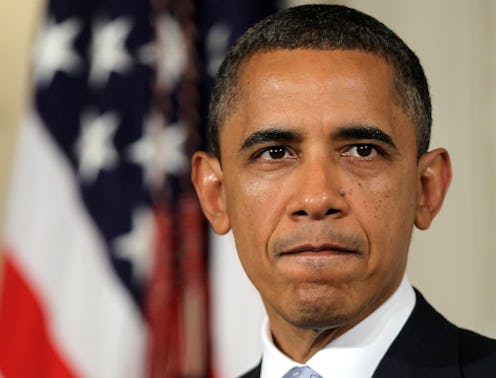News
White House Clarifies New Immigration Plan, Sorta
While there’s still a lot of confusion surrounding the Obama administration’s new immigration proposal, the White House wants one thing to be clear: The nearly 70,000 undocumented children who show up at the U.S. border every year won’t be deported if they’re likely to be killed back in their home country. At least, they probably won’t. Press Secretary Josh Earnest said on Monday that children who face a “credible threat of death” upon return to their home country will “likely” be given asylum by an immigration judge.
“[C]laims of asylum will be considered by an immigration judge and by asylum officials,” Earnest said. “What that means is it means that if an immigration judge determines that they face a credible threat of death upon their return to their home country, then, again, I'm not an immigration judge, but it is likely that the immigration judge will find that that person should be granted humanitarian relief.”
One of the biggest challenges in dealing with the growing humanitarian crisis at the U.S. border is the fact that many of the undocumented children who attempt to emigrate to the U.S. are doing so do because conditions in their home countries — notably those in Central America — are dangerous enough such that their lives are imperiled. As such, some have argued that they qualify more as “refugees” than “undocumented immigrants,” and thus that asylum should be more readily granted to them.
While the administration has announced plans to help “repatriate and reintegrate migrants to Central America,” Earnest also said days earlier that it’s “unlikely that most of the kids who go through this process will qualify for humanitarian relief,” and that “most of them will not have a legal basis” to remain in the country.
But the prospect of immigrant children being deported and then killed by smuggling groups was quickly raised by Maryland Governor Martin O’Malley, a Democrat widely thought to be considering a 2016 presidential run. In a speech to fellow governors Sunday, O’Malley proclaimed that “we are not a country that should turn children away and send them back to certain death.”
The White House’s statements on Monday came in direct response to a question about O’Malley’s concerns. And yet, despite the change in rhetoric, the administration is still keeping its hand relatively close regarding what, exactly, it plans to do about the border crisis. It’s announced a couple of vague proposals and requested $3.7 billion in funding from Congress, but the details of the plan remain vague. And Earnest’s implication that children won’t be deported if they’ll be killed upon return to their home country was filled with qualifiers — words like “likely” and “should” and “I’m not an immigration judge” — that make it clear he’s not actually announcing an official policy, but simply making a prediction.
While it’s commendable that Obama is at least trying to do something to stem the crisis, it’s still unclear what exactly he’s trying to do. Until the administration provides more specifics, its request for nearly $4 billion from Congress is likely to go unfulfilled.
